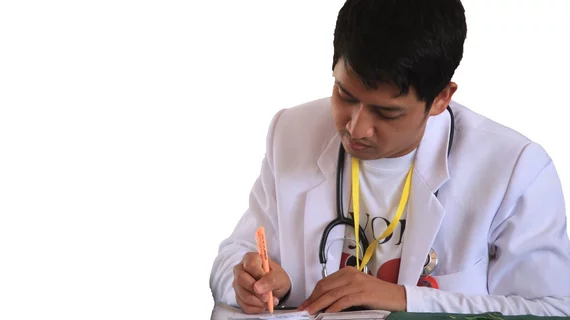Radiology trainees remiss in their own healthcare habits
Radiology is among the medical specialties whose trainees are highly likely to lack a routine place for their own medical care.
The Harvard Medical School researchers behind the finding, published online Nov. 23 in the Journal of the American College of Surgeons, note that the deficiency increases risk for depression and burnout.
Erika Rangel, MD, and colleagues sent a 44-question survey on medical and mental health to 102 residency directors in 20 New England teaching hospitals. The directors forwarded the survey to trainees in anesthesia, emergency medicine, family medicine, internal medicine, neurology, OB/GYN, pathology, pediatrics, psychiatry, radiology and surgery.
Of just under 300 residents who completed the survey, one-third reported not having a regular primary care provider. This translated into lower utilization of preventive health services for these respondents.
Similarly, close to 40% of those who lack a routine place for care take a prescription drug daily.
And two-thirds of the residents said they had symptoms of depression yet were less likely than the non-depressed to have seen a mental health professional.
Compared with residents in family medicine—the cohort most likely to have a gatekeeper doctor of their own—the specialties least likely to receive regular checkups were anesthesia, internal medicine, OB/GYN, pediatrics, radiology and surgery.
In their discussion, Rangel et al. pointed out that the health of physician trainees is crucial to the well-being of the overall provider population.
“During an epidemic of resident burnout, cultivating programs that ensure easy, efficient and confidential access to medical and mental health care is increasingly vital for healthcare systems,” they commented. “Developing programs to improve the health behaviors of trainees fosters delivery of high-quality healthcare from residents, promotes patient safety by reducing medical errors, symbolizes organizational commitment to resident well-being and establishes lifelong habits that support a long career in medicine.”

